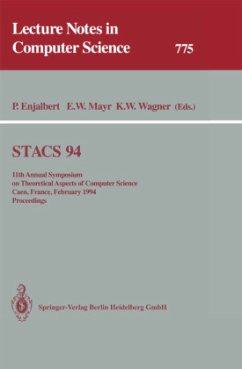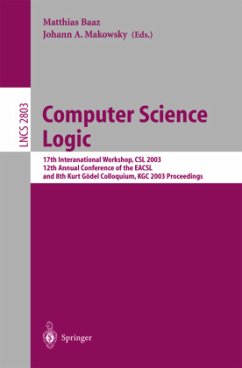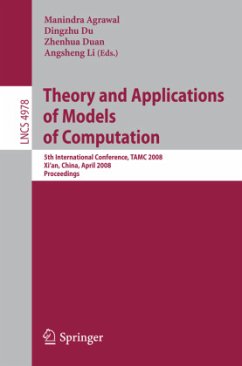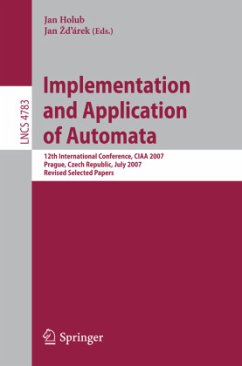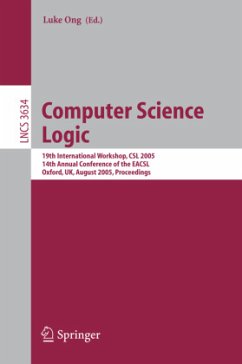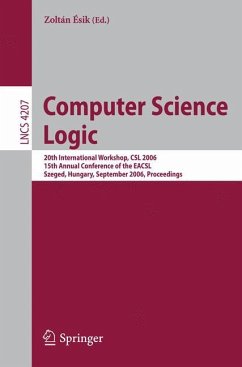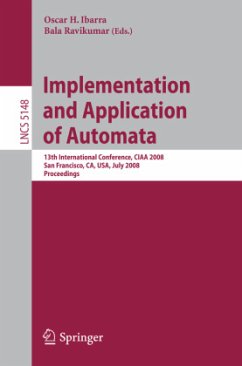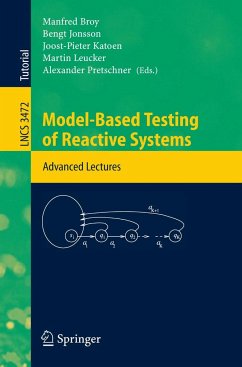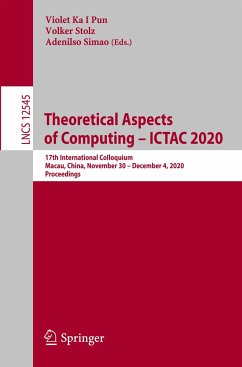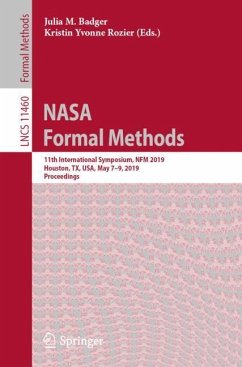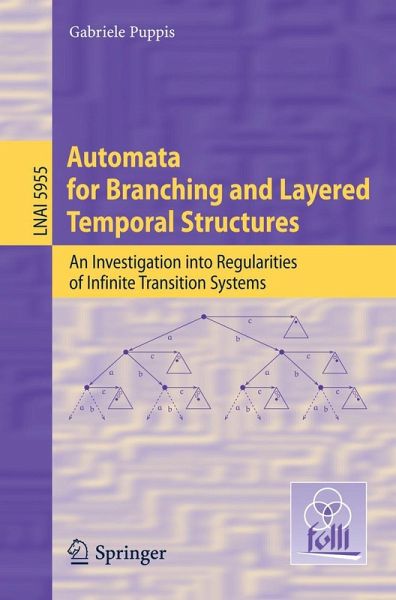
Automata for Branching and Layered Temporal Structures
An Investigation into Regularities of Infinite Transition Systems

PAYBACK Punkte
20 °P sammeln!
Since 2002, FoLLI awards an annual prize for an outstanding dissertation in the fields of Logic, Language, and Information. This book is based on the Ph.D. thesis of Gabriele Puppis, who was the winner of the E.W. Beth dissertation award for 2007. Puppis' thesis focuses on Logic and Computation and, more specifically, on automata-based decidability techniques for time granularity and on a new method for deciding Monadic Second Order theories of trees. The results presented represent a significant step towards a better understanding of the changes in granularity levels that humans make so easil...
Since 2002, FoLLI awards an annual prize for an outstanding dissertation in the fields of Logic, Language, and Information. This book is based on the Ph.D. thesis of Gabriele Puppis, who was the winner of the E.W. Beth dissertation award for 2007. Puppis' thesis focuses on Logic and Computation and, more specifically, on automata-based decidability techniques for time granularity and on a new method for deciding Monadic Second Order theories of trees. The results presented represent a significant step towards a better understanding of the changes in granularity levels that humans make so easily in cognition of time, space, and other phenomena, whereas their logical and computational structure poses difficult conceptual and computational challenges.





